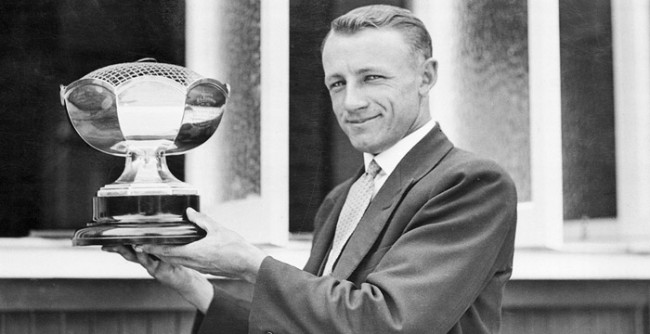Introduction
In today's visually-driven world, photography has become an integral part of various industries, including advertising, journalism, fashion, and more. With the rise of social media platforms and digital content creation, the demand for skilled photographers is higher than ever before. If you have a passion for capturing moments and telling stories through images, pursuing a diploma in photography can be a significant step towards a rewarding career. In this comprehensive guide, we'll explore how obtaining a diploma in photography in India can elevate your career prospects and provide you with the necessary skills to succeed in the field.
Understanding the Importance of a Diploma in Photography
While some may argue that photography is an innate talent, formal education and training can significantly enhance your skills and broaden your understanding of the craft. A diploma in photography provides aspiring photographers with comprehensive knowledge of technical aspects, creative techniques, and industry standards. It equips students with the practical skills and theoretical knowledge necessary to excel in various photography genres and pursue lucrative career opportunities.
Benefits of Pursuing a Diploma in Photography

1. Comprehensive Education: Diploma programs offer a structured curriculum covering various aspects of photography, including camera operations, lighting techniques the photography industry and networking opportunities.
2. Portfolio Development: Through assignments and projects, students build a diverse portfolio showcasing their skills and creativity, essential for attracting clients and securing employment opportunities.
3. Certification: Upon successful completion of the diploma program, students receive a recognized certification, validating their proficiency in photography and enhancing their credibility in the industry.
How to Become a Photographer in India
Becoming a successful photographer in India requires dedication, passion, and continuous learning. Here are some steps to kickstart your journey:
1. Develop Your Skills: Start by mastering the fundamentals of photography, including camera settings, composition techniques, and lighting principles. Practise regularly and experiment with different genres to find your niche.
2. Gain Knowledge: Invest in your education by enrolling in a diploma program or attending workshops and seminars conducted by industry experts. Continuously expand your knowledge and stay updated with the latest trends and technologies in photography.
3. Build Your Portfolio: Create a compelling portfolio showcasing your best work across various genres, such as portrait photography, landscape photography, fashion photography, etc. Your portfolio is your visual resume and plays a crucial role in attracting clients and securing opportunities.
4. Network: Connect with fellow photographers, industry professionals, and potential clients through social media platforms, photography forums, and networking events. Building relationships and collaborations can open doors to new opportunities and exposure.
5. Market Yourself: Establish a strong online presence by creating a professional website and leveraging social media platforms to showcase your work and engage with your audience. Utilize digital marketing strategies to reach potential clients and promote your services effectively.
Choosing the Right Diploma Program
When selecting a diploma program in photography, consider the following factors:
1. Accreditation: Choose a program offered by a reputable institution with accreditation or recognition from relevant industry bodies or educational authorities.
2. Curriculum: Evaluate the curriculum to ensure it covers a wide range of topics relevant to your interests and career goals, including technical skills, artistic development, and business aspects of photography.
3. Faculty: Research the qualifications and experience of the faculty members to ensure they are skilled practitioners and effective educators who can provide valuable guidance and mentorship.
4. Facilities and Resources: Consider the facilities, equipment, and resources available to students, such as studios, darkrooms, digital labs, and access to industry-standard photography gear.
5. Alumni Success: Look into the success stories of past graduates and alumni of the program to gauge its effectiveness in preparing students for successful careers in photography.
Curriculum Overview, composition, post-processing, and more.
1. Hands-On Experience: Students have the opportunity to gain practical experience through workshops, projects, and internships, allowing them to hone their skills under the guidance of experienced professionals.
2. Industry Exposure: Diploma programs often include guest lectures, industry visits, and collaborations with professionals, providing students with valuable insights into
While the specific curriculum may vary depending on the institution and program, a diploma in photography typically covers the following subjects:
- Camera operations and techniques
- Lighting principles and techniques
- Composition and framing
- Image editing and post-processing
- Photography genres and styles
- Business and marketing for photographers
- Portfolio development and presentation
- Ethics and legal aspects of photography
Career Opportunities
A diploma in photography opens up a wide range of career opportunities in various industries, including:
- Commercial Photography: Work with businesses, advertising agencies, and brands to create compelling visual content for marketing campaigns, product launches, and promotional materials.
- Portrait Photography: Specialise in capturing portraits of individuals, families, couples, and events such as weddings, engagements, and graduations.
- Fashion Photography: Collaborate with fashion designers, brands, and publications to create captivating images showcasing clothing, accessories, and fashion trends.
- Photojournalism: Document news events, social issues, and human interest stories for newspapers, magazines, online publications, and documentary projects.
- Fine Art Photography: Create artistic and conceptual imagery for galleries, exhibitions, and personal projects, expressing your unique vision and creative expression.
- Wedding Photography: Capture the special moments and emotions of weddings and other celebratory events, providing couples with timeless memories to cherish.
- Freelance Photography: Work as a freelance photographer, offering your services to clients across various industries and genres, allowing flexibility and creative freedom.
Conclusion
A diploma in photography in India can be a transformative step towards a fulfilling and lucrative career in photography. By gaining comprehensive education, practical experience, and industry exposure, aspiring photographers can elevate their skills and unlock a world of opportunities in various sectors. Whether you dream of becoming a fashion photographer, photojournalist, or fine art photographer, investing in your education and passion for photography can lead to a successful and rewarding career. So, take the first step towards your photography journey today and capture the world through your lens!








